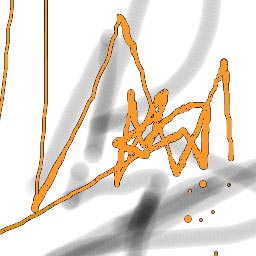
The Tradlat research group is the result of a research workshop, ‘Les traductions latines d’œuvres en langues vernaculaires au Moyen Âge : recensement et méthodologie’, held in Paris on 26 April 2001 as part of the Institut de Recherche et d’Histoire des Textes’ programme for 2000-2001 (on the general topic of translations).
Tradlat firstly ratified a protocol governing the description of Latin translations, then quickly proceeded to a first listing of such translations. Then, to present the specific problems inherent in these translations, they published a four-author article, ‘Vers un inventaire informatisé des traductions latines d’œuvres vernaculaires’ (Scriptorium, t. 59 [2005], fasc. 1, p. 90-108).
Made up of a small group of researchers – mostly Latinists and Romance medievalists – aware of and keen to explore the phenomenon, Tradlat developed a research project covering both :
• a web-site to publish information and articles on this topic in general, and
• as complete a listing as possible of Latin translations from vernacular originals ; this listing will be gradually added to a web-accessible database ([base BUDE]). The BUDE (Base Unique de Documentation Encyclopédique) database, devoted to Humanism and the transmission of texts, collects information about the dissemination of ancient and medieval works in manuscripts and printed works from the Middle Ages and the Renaissance (in this context until the 17th century). All data provided by Tradlat on BUDE are marked as such.
Through these two tools (the web-site and the contribution to BUDE), Tradlat intends to offer the public its list of Latin translations. This in turn will enhance general understanding of Latin as a means of translation, as well as providing important lexicographical material.
A provisional listing, updated daily, of Latin translations from the vernacular is available in the [Repertorium] section of this site.
Tradlat’s wish is to make public any fortuitous findings from their research on medieval and ancient texts. The group also hopes to make contact with those who can contribute knowledge of those vernacular languages that are currently under-represented in the group (Scandinavian languages, German, English and Flemish).
Docta interpretatio in latinum sermonem "Traductions savantes vers le latin" : colloque organisé à l’ ENSSIB les 22 et 23 novembre 2013
Vient de paraître :
Traduire de vernaculaire en latin au Moyen Age et à la Renaissance. Méthodes et finalités. Études réunies par Françoise Fery-Hue, Paris, École des Chartes, 2013, 342 pages (Études et rencontres de l’École des chartes, 42). ISBN 978-2-35723-035-4 - Prix France : 32€
Consacré à la traduction au sens le plus large, le récent colloque du Medieval Translator à Louvain du 8 au 12 juillet 2013 :
The Medieval Translator 2013 / The Cardiff Conference on the Theory and Practice of Translation in the Middle Ages
"Translation and Authority - Authorities in Translation"
fournit de nouvelles contributions sur les traductions de vernaculaire en latin et sur l’apprentissage des langues vernaculaires à l’aide du latin
Nikolaus Thurn, Neulatein und Volkssprachen. Beispiele für die Rezeption neusprachlicher Literatur durch die lateinische Dichtung Europas im 15.-16. Jh., München, Wilhelm Fink, 510 p. (Humanistische Bibliothek, Texte und Abhandlungen, 61).



